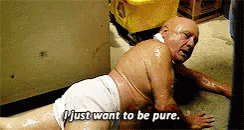The Rice Purity Test is a well-known self-assessment questionnaire that originated at Rice University in the 1920s. It consists of 100 questions designed to gauge an individual’s perceived level of innocence or experience regarding various life activities, particularly those related to sex, drugs, and other social behaviors. Participants answer by checking off activities they have engaged in, with each checked item deducting from a perfect score of 100.
Purpose and Context
Initially created to help college students bond and reflect on their experiences as they transitioned into adulthood, the test has gained popularity on social media platforms like TikTok, where users share their scores and engage in playful discussions about their experiences. The test is not intended to be a serious measure of character but rather a lighthearted way to explore personal experiences and societal norms regarding purity and innocence.
Scoring System
The scoring of the Rice Purity Test ranges from 0 to 100, with higher scores indicating greater perceived purity. Here’s a breakdown of what different score ranges suggest:
100-98: Very Pure

You are considered exceptionally innocent, likely having very limited romantic or sexual experiences.
97-94: Pure

You remain quite pure, with your experiences possibly limited to innocent dating or social interactions.
93-77: Relatively Pure

This range indicates a more average level of purity, suggesting some romantic or sexual experiences without significant indulgence in risky behaviors.
76-45: Moderately pure

Individuals in this range have had moderate exposure to adult activities, indicating a balance between innocence and experience.
44-15: Impure

Scoring here suggests a history of engaging in various adult behaviors, including substance use or casual relationships.
14-0 Very impure

This score reflects extensive engagement in adult activities, often including serious infractions such as drug use or criminal behavior.
Cultural Significance
The Rice Purity Test serves as both a social tool and a cultural artifact, reflecting changing attitudes towards sexuality and morality among different generations. While it can provide insights into personal experiences, it’s essential to approach the results with humor and not take them as definitive judgments of character or worth.
In contemporary settings, the test has sparked conversations about innocence and experience among younger audiences, often leading to discussions about societal expectations and personal values. It remains a popular activity among college students and young adults as they navigate their formative years.
Social Message
The Rice Purity Test is a lighthearted way to reflect on personal experiences and societal norms surrounding innocence and adulthood. It’s important to remember that everyone’s journey is unique, and there is no right or wrong score. Use the test as a conversation starter and a means to foster understanding among peers about diverse life experiences.
Disclaimer
The Rice Purity Test is intended for entertainment purposes only and should not be taken as a serious measure of character or morality. Individual scores may vary widely based on personal choices and cultural backgrounds. Engaging in any activity mentioned in the test should be done responsibly and with consideration of legal and health implications. Always prioritize your well-being and respect the choices of others.
Don’t Miss,

